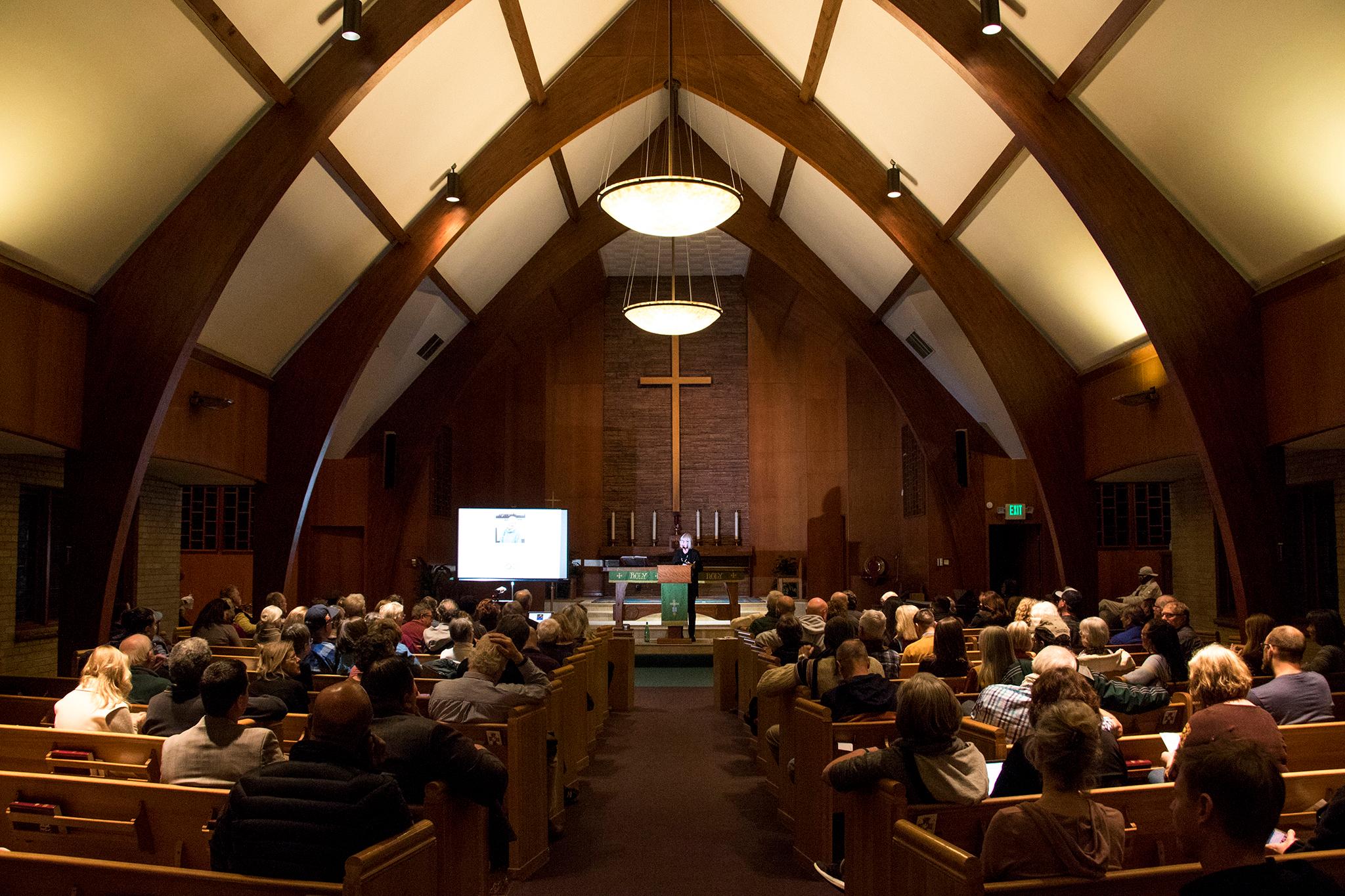Mayoral candidates Lisa Calderón and Penfield Tate III met at a Park Hill church Tuesday evening for a forum, kicking off Denver's next political season.
This was not a debate. Each candidate (two of 10 so far) got about 45 minutes to wax politic and take questions from a crowd of about 120 people attending the City Park Friends and Neighbors meeting. Most of the audience was older, with some younger blood mixed in.
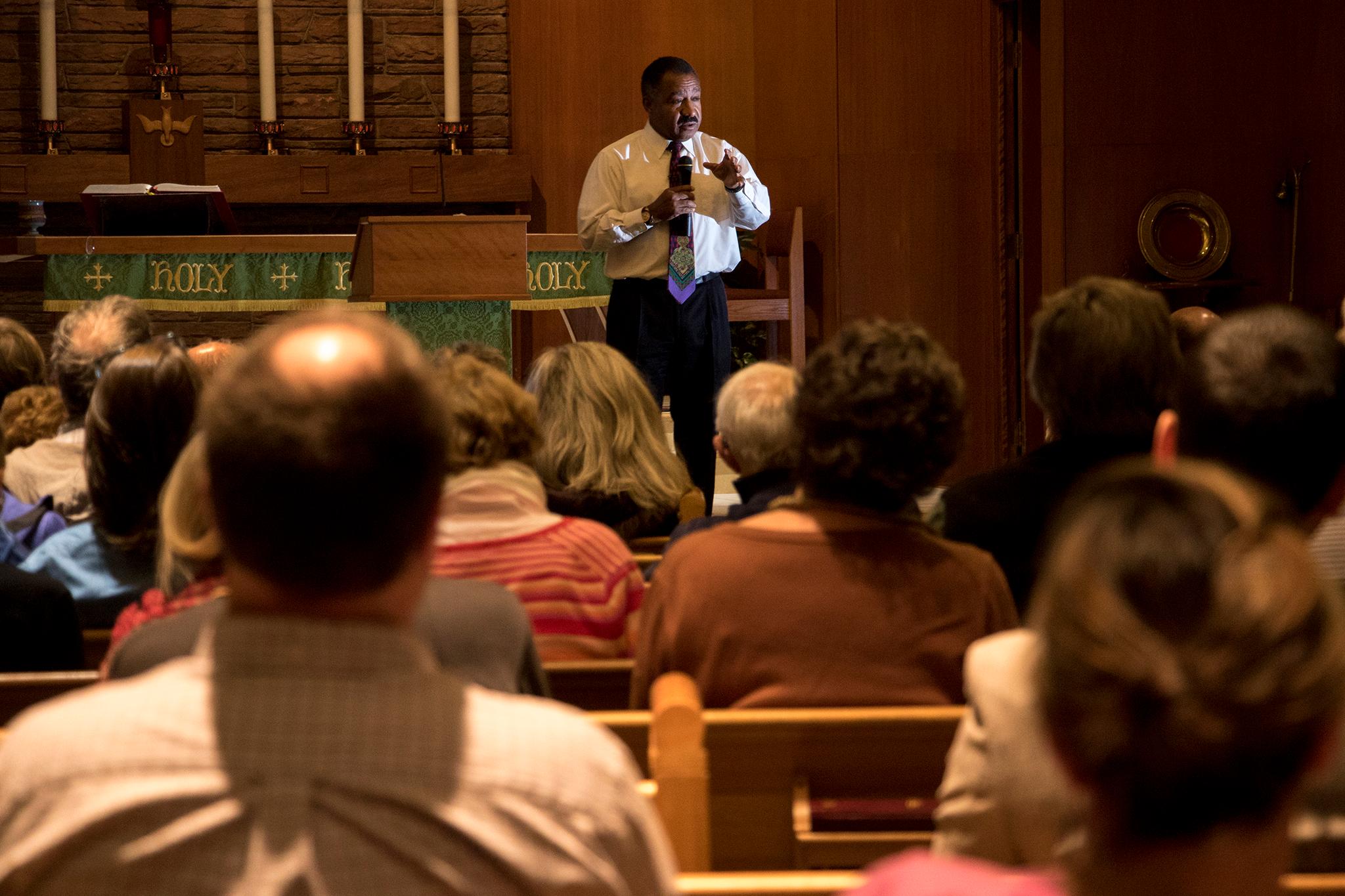
Both candidates relayed well-polished talking points about development, homelessness, transparency and transportation. Calderón, a justice professor at Regis University and criminal justice advocate, shared a few more specific policy goals than Tate, an attorney and former state senator. She also grabbed the most enthusiastic cheers. Both mayoral hopefuls laid down plenty of rhetoric aimed at the policies of Mayor Michael Hancock's administration.
Here's how things went.
Neither likes the expansion of I-70 through north Denver neighborhoods.
The Colorado Department of Transportation's I-70 widening, which is backed by the Hancock administration, was a big topic Tuesday because neighborhood advocates who are fighting the project showed up.
Tate said he has always favored bending the highway through Adams County, around the dense neighborhoods of Elyria Swansea and Globeville, instead of through them. That statement elicited the biggest cheers he got all night.
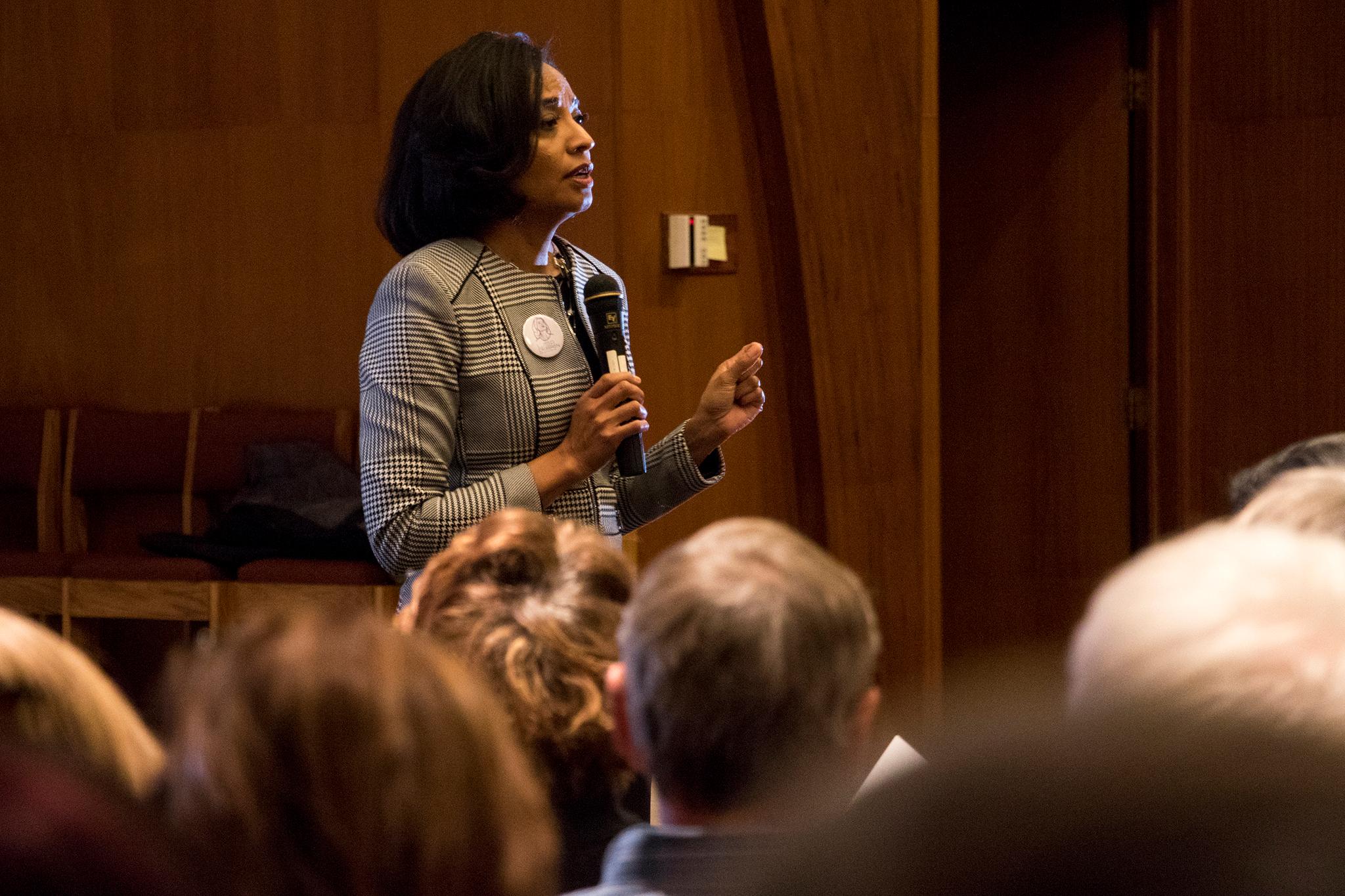
He said he'd like to sit with Governor-elect Jared Polis to look at other options. But Tate was careful not to commit to any action as mayor, noting that the project is a result of several mayoral and gubernatorial administrations.
"I don't support it now, I didn't support it then, I won't support it as mayor," Tate said. "My only concern is that I don't know what viable options we have."
Tate's law firm represents CDOT but the candidate says he recuses himself of all work with the state transportation agency.
Calderón has been in "lockstep" with advocates fighting the widening since day one, she said, adding that the project is emblematic of discrimination against poor and minority residents.
"We know that highway never should've been built there in the first place," Calderón said. "Now here we are 50 years later fighting essentially the same fight for the community to be heard."
The issue is a touchstone for Calderón's bigger goal of ensuring "resident-led development."
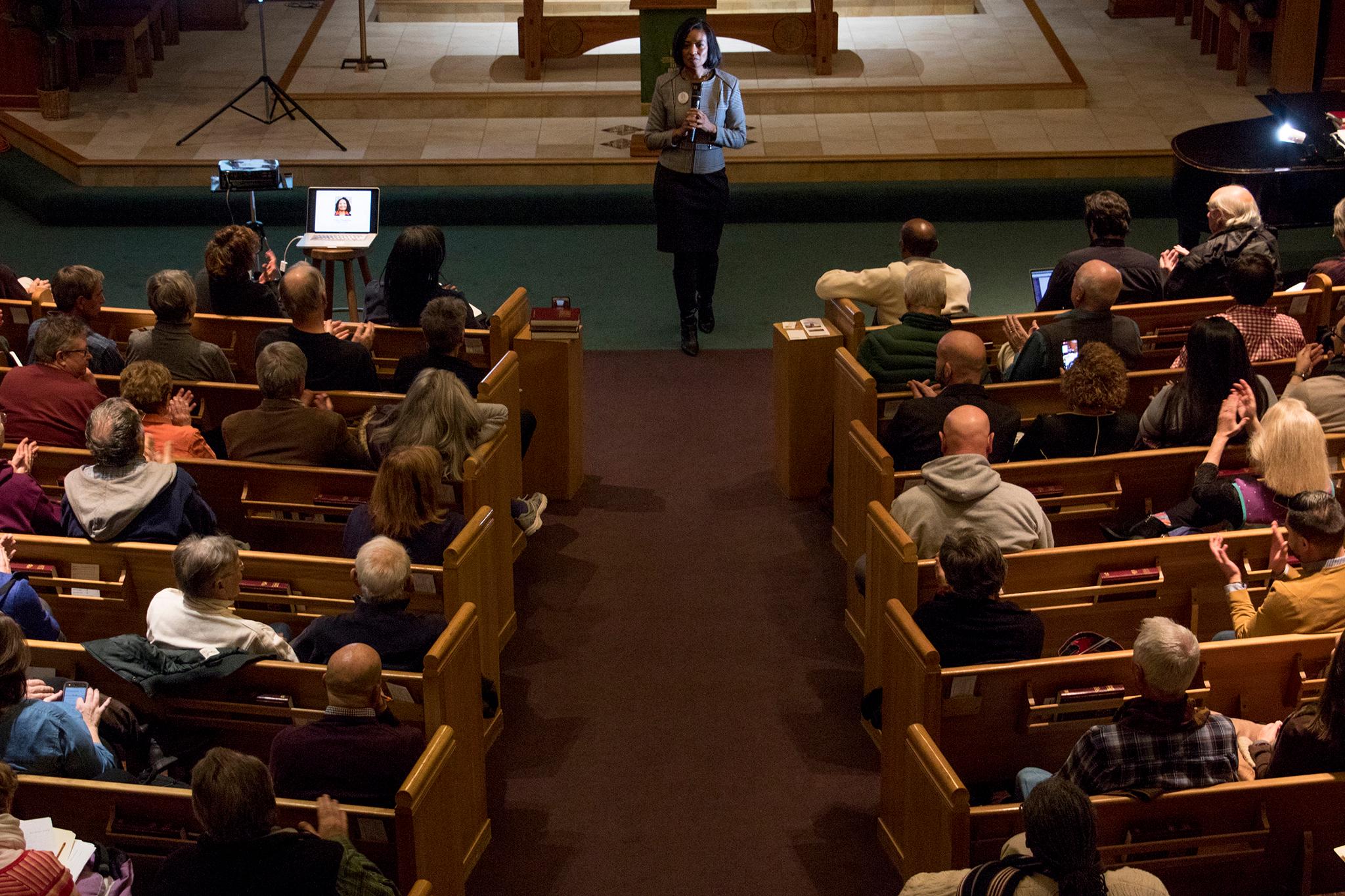
That's a good segue to development.
Calderón earned her biggest cheers from saying the Hancock administration holds "fake community engagement sessions" as neighborhoods change and develop. In other words, the plans are baked from the outset, she claimed.
(The Hancock administration has embarked on a two-year-plus city planning process, dubbed Denveright, that the mayor has called unprecedented in terms of inclusion.)
She aims to curb the power of the mayor's office, make fewer positions appointed, and give residents the strongest voice in development, adding that she's not against more density. "I'm probably the first candidate in history to advocate for less power in the mayor's office," she said. "What I would call that instead is shared power."
Tate had similar things to say.
"The city needs to listen to what we have to say because but for us, there's no city," Tate said. "This communication hasn't occurred. It has broken down fundamentally."
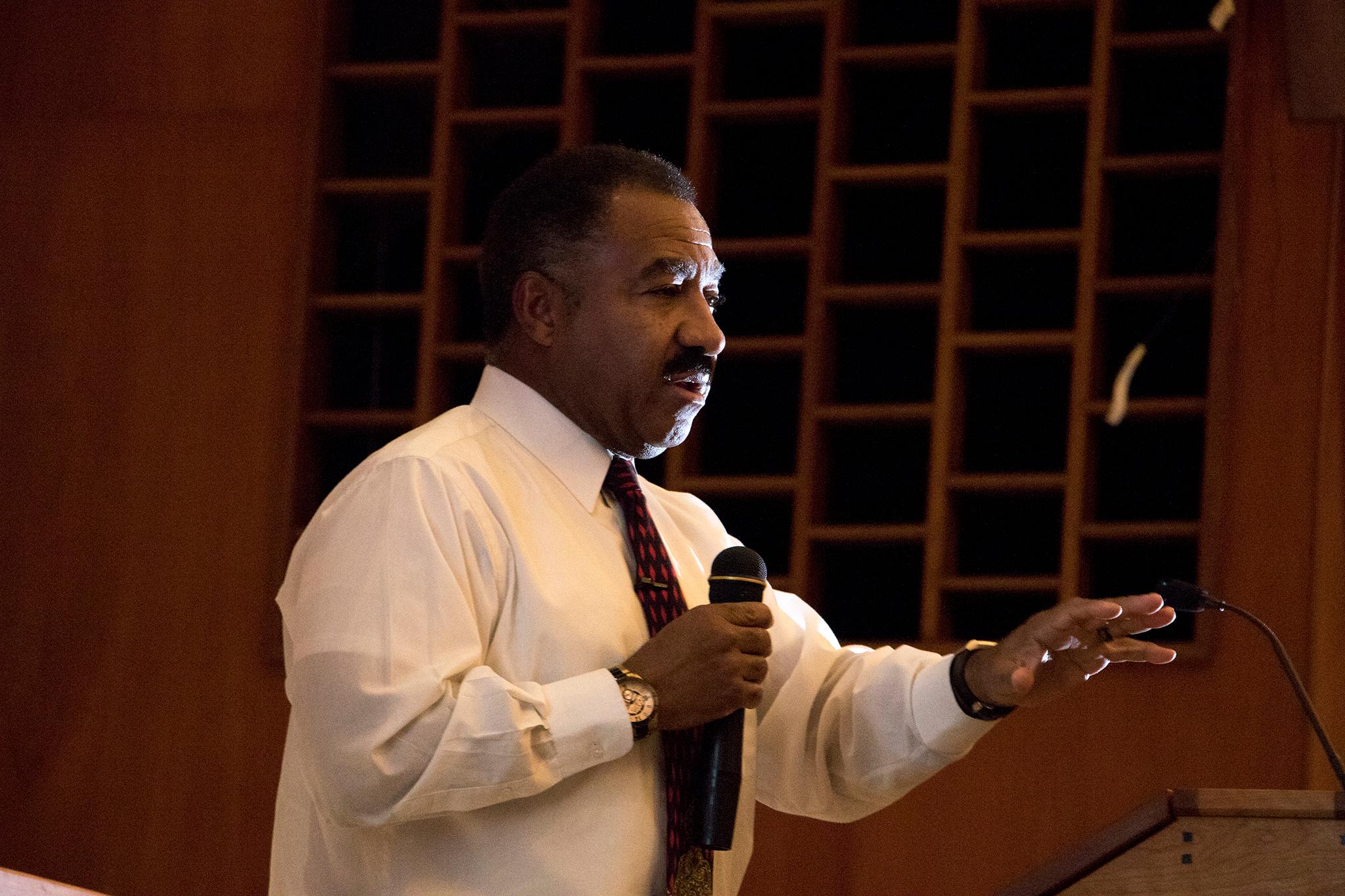
He called for "radical change, a change in our approach, a change in what we're doing specifically," but did not get specific. Tate said he is "not anti-growth" but that the city "doesn't have a sound plan for growth" either.
They had different takes on people experiencing homelessness and the urban camping ban.
Calderón told attendees she would repeal the urban camping ban, which hinders people without homes from sleeping in public.
Tate would not commit to repealing the law, calling the ban a treatment of a "symptom" rather than a "root cause."
"I don't know its necessarily fair to let people sleep wherever they want," Tate said. "It's a public safety issue not just for the greater community but for the people sleeping on the street."
The candidate said he would address homelessness in his first 100 days of office. How, exactly, was less clear. As mayor, he said he would invest more resources in organizations working with people experiencing homelessness and strategically locate them where the need is highest.
One candidate claimed the city doesn't have a plan for transportation. The other said tech will fix things.
"Right now the way the city does a transportation plan is we don't have one," Calderón said. "The developers decide what transportation plans we have."
(The city's plans for transportation include an older one for biking and three new ones for transit, walking, and how transport relates to land use. The bigger question is funding them.)
Tate claimed downtown merchants are suffering because surface parking lots are being replaced by homes and offices, adding that it takes "forever" to drive across town nowadays. The city can't trust the Regional Transportation District to develop more transit options, he added.
"That's where we have to be creative, we have to be bold," Tate said. "We have to look to technology to address traffic congestion."
That's as specific as he got. (The city does have plans to improve transit with things like bus lanes, but again, it comes down to funding.)
That's all from the campaign trail. The neighborhood organization will hold another forum December 4 with Jamie Giellis and Chairman Seku.

